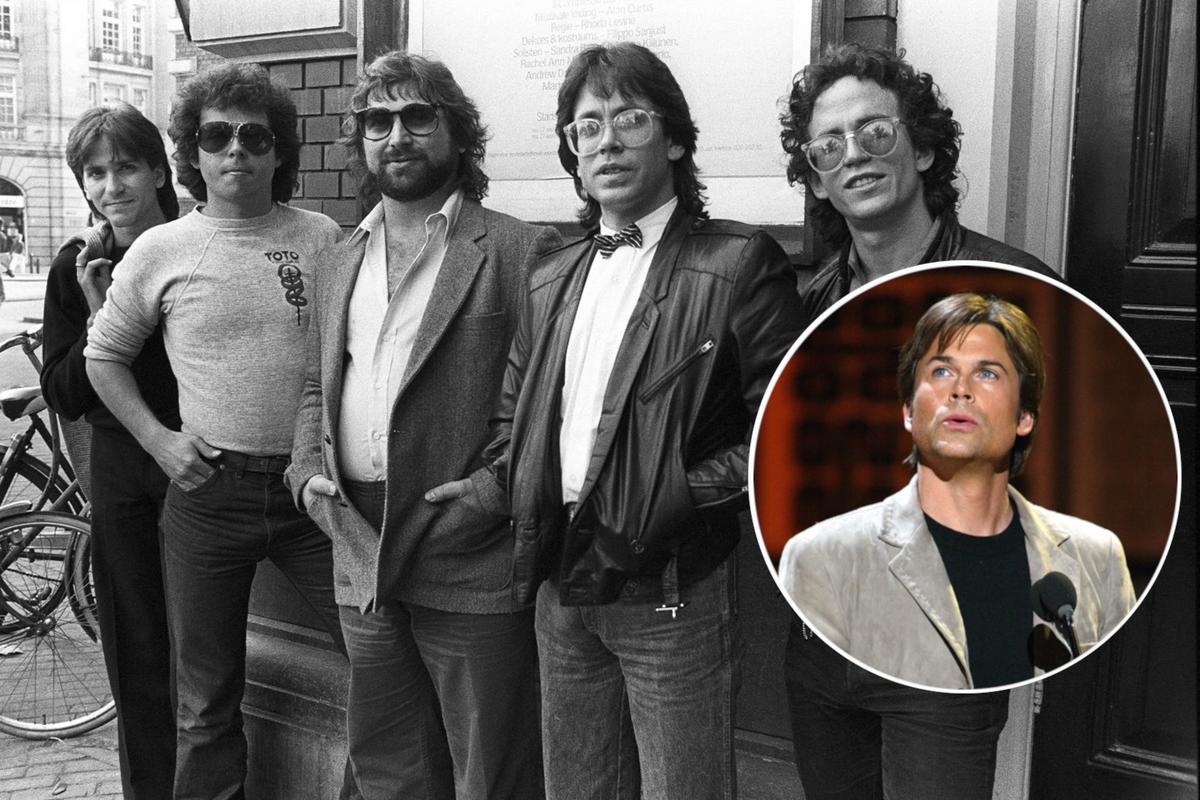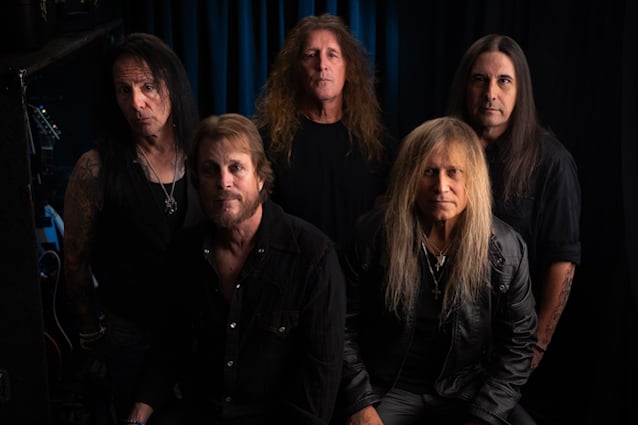Here’s the best “epic” song (lasting 10-plus minutes) from 11 big progressive metal bands!Back in July 2024, Loudwire looked at the best “epic” song by 10 classic prog rock bands. Now, it’s time to show the same sort of love to the top-tier “epics” from 11 premier progressive metal acts.Naturally, narrowing down to the final list was difficult, as there are exceptional suites from dozens of genre groups who manage to flex their chaotically complex chops across multiple movements.READ MORE: The History of Prog Metal in 21 AlbumsNevertheless, the following tracks deserve the most attention because they embody their respective creators’ best efforts to dish out especially lengthy compositions. Beyond that, they house some of the greatest prog metal our ears have ever heard.That said, we’d love to know if you agree with our picks, as well as which “epic” prog metal tunes you can’t stop blasting.Also, keep in mind that although the oldest track here is from the mid-80s (when prog metal first got going), there simply aren’t as many options to pick from that era, so we’re not distinguishing between “classic” and “modern” artists.The Best ‘Epic’ Song by 11 Big Prog Metal BandsSymphony X, “The Odyssey”2002’s The Odyssey isn’t necessarily Symphony X’s best album overall – predecessor V: The New Mythology Suite takes that crown – but it is among the best power metal LPs of all time. Much of the credit for that distinction goes to its namesake closing, well, odyssey, as it’s almost certainly the band’s compositional magnum opus. Based on Homer’s famous poem (obviously), it easily does justice to the stature and legacy of his work.After its requisitely spellbinding orchestral overture, “The Odyssey” traverses six subsequent movements that flow together seamlessly and captivatingly until the finale. Together, bandleader/guitarist Michael Romeo and keyboardist Michael Pinnella solidify their spot as a superlative duo in the field, flexing their virtuosic muscles in ways that clearly serve the music instead of their egos. The rest of the instrumentalists are just as amazing, and their tonal fluctuations are perfectly complemented by irreplaceable vocalist Russell Allen (whose sing-along outbursts and confessions, both soft and gruff, are overwhelmingly enticing).From beginning to end, “The Odyssey” is absolutely stunning. Dream Theater, “A Change of Seasons”The titular track to Dream Theater’s 1995 EP marked the debut of keyboardist Derek Sherinian, and it was originally meant to appear on 1992’s Images and Words (but was saved for later so that Images and Words wouldn’t be too lengthy). Inspired by the death of Mike Portnoy’s mother and the circle of life, “A Change of Seasons” remains the quintet’s most lyrically and musically cohesive and impactful “epic” tune (sorry, “Six Degrees of Inner Turbulence” and “In the Presence of Enemies”).Undoubtedly, John Petrucci’s beautifully foreboding opening acoustic guitarwork (with lovely accompaniments) is iconic, setting the stage for the track’s cathartic nature following a few minutes of playfully hectic yet tasteful jamming and foreshadowing. Honestly, it’s that consistently exquisite juxtaposition of dark and light passages that makes ‘A Change of Seasons” endlessly wonderful, with James LaBrie’s voice soaring as well as ever as he delivers some of Portnoy’s most poetic lyrics (“Tripping through / The life fantastic / Lose a step / And never get up / Left alone / With a cold blank stare / I feel like giving up”).As instrumentally daring as it is melodically alluring, “A Change of Seasons” represents the best of Dream Theater’s early period, and the way it comes full circle at the end is ingeniously satisfying.Iron Maiden, “Rime of the Ancient Mariner”Look up any ranking of Iron Maiden’s songs – including Loudwire’s – and you’re virtually guaranteed to see “Rime of the Ancient Mariner” near the top of the heap. Lifted from 1984’s Powerslave and inspired by Samuel Taylor Coleridge’s revered 1798 text, it’s reigned as the English ensemble’s lengthiest tune for over 30 years (until “Empire of the Clouds” from 2015’s The Book of Souls outdid it). Even so, “Rime of the Ancient Mariner” is the superior excursion.For one thing, it epitomizes bassist Steve Harris’ knack for storytelling and adaptation, capturing the core of the original tale with his own steadfast style (“The mariner kills the bird of good omen / His shipmates cry against what he’s done / But when the fog clears, they justify him / And make themselves a part of the crime”). Naturally, Bruce Dickinson belts out every word with trademark vigor and compassion, injecting life into Harris’ words.All the while, the arrangement alternates as needed to suit the unfolding drama, with Harris’ bouncy patterns flawlessly aided by Nicko McBrain’s syncopation. The ensuing interlude is among Iron Maiden’s most subtly eerie passages as well, giving way to a hyperactive final half that skillfully brings it home while evoking “The Number of the Beast” along the way.Between the Buried and Me, “The Proverbial Bellow”Although it was still highly enjoyable and impressive, 2018’s Automata I largely found Between the Buried and Me playing it safe. As such, many fans expected Automata II to be similarly likeable but cautious and familiar. However, prior to its release, the group promised that the second half of the duology would feature some of their strangest and bravest material to date, and once “The Proverbial Bellow” kicked off, it was abundantly clear that they weren’t lying.At the risk of sounding hyperbolic, “The Proverbial Bellow” might be the quintessential BTBAM adventure. Full of characteristically vibrant zaniness (complete with eclectic timbres and chilling textures); cryptically metaphysical/existential songwriting; and utterly engrossing hooks, it’s a nonstop rollercoaster of emotional intensity and wacky explorations.Seriously, its chorus – “Please pick up / Pick up the phone / It’s been ringing / For years now / I’m so alone here / Sensory bliss” – is probably the catchiest thing frontman/keyboardist Tommy Rogers ever sung, and it’s just a fragment of why “The Proverbial Bellow” is so relentlessly remarkable.Opeth, “Deliverance”Aside from the 20-minute “Black Rose Immortal” (from 1996’s Morningrise), Opeth have never written a side-long piece. In fact, all of their best “epics” are under 14 minutes long, and from that set, there are at least a handful that could’ve taken this spot (including “The Moor,” “Moon Above, Sun Below” and ‘Reverie/Harlequin Forest.” Yet, when push comes to shove, it has to be the title track to 2002’s deliciously dark Deliverance that rises above the rest.Why? Because it’s a masterpiece of progressive death metal that uses downright hypnotic riffs, rhythms and melodies to examine an extremely obsessive and controlling form of romantic love. As usual, mastermind Mikael Åkerfeldt and company offset enthralling brutality with pristine beauty and sorrow as only they can, tying together wildly different temperaments with ease.Åkerfeldt’s growls and lamentations – respectively – are as devilish and divine as ever, too, and of course, “Deliverance” builds expertly toward its legendary finale (during which ex-drummer Martin López’s cleverly switches his motifs every few measures). It’s a magnificently mesmerizing and inventive closing section that single-handedly cements Opeth as the kings of their domain.Tool, “Wings for Marie (Pt. 1)” / “10,000 Days (Wings Pt. 2)”Yes, “Wings for Marie” is split into two consecutive halves, but as we determined with our ranking of Tool’s songs back in January 2024, it’s best thought of as a single statement. An undeniable highlight of 2006’s 10,000 Days, the 17-minute composition chronicles singer Maynard James Keenan’s anguish following the 2003 death of his mother (who was left paralyzed after suffering a cerebral aneurysm in 1976).“[Those songs] just took too much out of me – too much emotionally, mentally, physically – all those manifestations. . . . And technically, ‘Wings’ is very difficult to pull off. If any of us is off, it falls apart and makes the thing tragic, and that’s not a good song for me to have fall apart. It’s just too personal,” Keenan confessed during the press cycle for the LP.Indeed, “Wings for Marie” is an elegantly harrowing ride, forgoing much of the quartet’s typical lively aggressiveness in favor of a slow burn escalation of entrancing guitar patterns, anxious rhythms and poignantly subdued musings from Keenan.It’s brilliantly tense, atmospheric, dynamic and repetitious, forcing listeners to get lost in Keenan’s grief as they reflect on their own earthly contemplations. The use of thunder to amplify his metaphorical storm of sorrow is the icing on the cake, and the purifying outbursts near the end give Keenan – and fans – the chance to purge themselves of their inner darkness.Mastodon, “The Last Baron”The culmination of everything that makes 2009’s Crack the Skye the oddest, “proggiest” and debatably greatest album Mastodon ever made, closer “The Last Baron” is a fascinatingly volatile mishmash of sing-along hooks and psychedelically fierce instrumentation. Obviously, its ability to tie together several preceding narrative threads (revolving around astral projection, Tsarist Russia and the death of drummer/singer Brann Dailor’s sister) adds to its remarkableness.The song begins unassumingly enough, with its moody arrangement and ominously tuneful verses and harmonies yielding a somewhat comforting winddown. However, it soon shifts into a tidal wave of uneasy sophistication when guitarist Brent Hinds and bassist Troy Sanders exchange gravely declarations as the foursome navigate a handful of interlocking and immensely complex movements that exemplify their top-level eccentricity and resourcefulness. (Just try hearing the breakdown at the 6-mnute mark without your jaw dropping to the ground.)If there’s one track that signifies Mastodon’s creative and technical peaks, it’s “The Last Baron.”Devin Townsend, “Singularity”Of all the records Devin Townsend’s put out over the last 30 years – be they solo outings, Strapping Young Lad collections, a Devin Townsend Band release or something else – 2019’s Empath likely does the best job of encapsulating his entire artistic compass. Therefore, it’s only right that it concludes with “Singularity,” a nearly 24-minute (six-part) overview of his endearing introspectiveness and madcap versatility.At first (via opening segment “Adrift”), “Singularity” is as gentle and deep as anything else Townsend’s done, with calming acoustic guitar strum; delicate orchestration; and soft singing and backing vocals encouraging him – and us – to forge ahead despite the uncertainties of life. It’s a divine introduction that anyone struggling with their place in the world would benefit from absorbing.Before long, though, that symphonic gracefulness starts being interspersed with skillfully controlled chaos and bizarre transformations as only Townsend could devise. The resulting journey comprises a relentlessly imaginative ebb and flow between angelic cleansing (“Curious Gods”), demonic outlandishness (“There Be Monsters”) and peculiar sound collages (“Silicon Scientists”). In the process, Townsend discusses self-love, self-hate and everything in-between prior to reprising “Adrift” to tie together the philosophical and musical themes of “Singularity.”As such, and like many of Townsend’s past pieces, it’s absolutely a work of genius.The Ocean, “Jurassic | Cretaceous”Germany’s The Ocean definitely have a sizeable following, but compared to the other acts on this list, they remain relatively (and criminally) underknown. Formed in 2000, they’ve developed a truly singular sound across their nine studio LPs by masterfully melding prog metal, post-metal, sludge metal and other variants with a preference for paleontological themes. “Jurassic | Cretaceous” – from 2020’s Phanerozoic II: Mesozoic / Cenozoic – is an outstanding example of why they’re so special.Right away, its synchronized (yet irregular) guitar riffs and drumming erupt with alluring attitude, and the addition of piano notes and soothing horns adds cinematic distinctiveness and depth. From there, the arrangement alternates between calmness and cataclysm as one-of-a-kind frontman Loic Rossetti sings with corresponding fragility and ferocity. It’s wholly captivating.That said, the real brilliance of the track comes about halfway through, when it commits to a previously previewed Tool-esque evolution of peaceful but threatening themes over which guest vocalist Jonas Renkse (Katatonia) pours characteristically ethereal proclamations. Eventually, Rossetti joins him, and the pair steer “Jurassic | Cretaceous” toward its breathtakingly intense final moments.Haken, “The Architect”Few modern ensembles in the genre fuse technical proficiency with fun vibes better than Haken, and unsurprisingly, they’ve been taking listeners on epic voyages since they began. (Their initial full-length offering, 2010’s Aquarius, alone contains four of them: “The Point of No Return,” “Streams,” “Aquarium” and 17-minute closer, “Celestial Elixir.”) Nevertheless, it’s Affinity centerpiece “The Architect” that dominates when it comes to balancing quality and quantity.As with many other tunes on the 2016 release, “The Architect” spiritedly synthesizes Haken’s wacky prog metal exuberance (including classical touches) and poppy hooks with an album-specific emphasis on retro 1980s synth rock and digital effects. Singer Ross Jennings’ charming vulnerability leads the charge until a heavenly instrumental break midway through symbolizes Haken at their most tastefully adventurous.Suddenly, Leprous’ Einar Solberg chimes in with atypical screams as Haken increase their dizzyingly complex savagery, only to recall the opening segment with more gusto before wrapping things up. It’s a jaw-dropping finale that’ll leave you gratefully exhausted and thoroughly impressed.Periphery, “Reptile”When Periphery IV: Hail Stan arrived in 2019, there was a lot of talk about it starting with Periphery’s longest song to date, “Reptile” (which clocks in at over 16 minutes). Sure, they ended 2010’s Periphery with the almost equally lengthy “Racecar,” but it’s both riskier and less common to kick things off with such a behemoth. According to drummer Matt Halpern, they put it first because “it’s everyone’s favorite track in the band” and because it “showcases every aspect of the album as well.”To his point – and similar to at least half of the preceding compositions – “Reptile” is the ultimate representation of its creator, illustrating multiple facets of Periphery’s artistry like an all-in-one dose of striving hyperactivity and irresistible sensitivity.Its symphonic prelude patiently builds anxiety as Spencer Sotelo delivers one of his most addictive refrains (“There must be something in the water / Where he lie, where he lie”). In doing so, and over the ensuring minutes, Periphery demonstrate how well they can juxtapose affective elegance and seemingly untamable belligerence. Each member is performing at the top of their game, generating a grippingly unstable environment.A softer section in the middle – commencing with SikTh’s Mikee Goodman supplying a raspy poem – interrupts the bedlam with one of Periphery’s most majestic passages. It’s not long, however, before the group return to their destructive djent leanings and then spend the remaining time combining those polar opposite templates.By the end, “Reptile” is nothing short of a benchmark creation that reveals new layers with each listen.11 Best Progressive Metal Albums of 2024These LPs embody the best of what progressive metal offered in 2024!Gallery Credit: Jordan BlumThe History of Prog Rock in 20 AlbumsPrepare to dig through nearly 60 years of prog rock records!Gallery Credit: Jordan Blum







